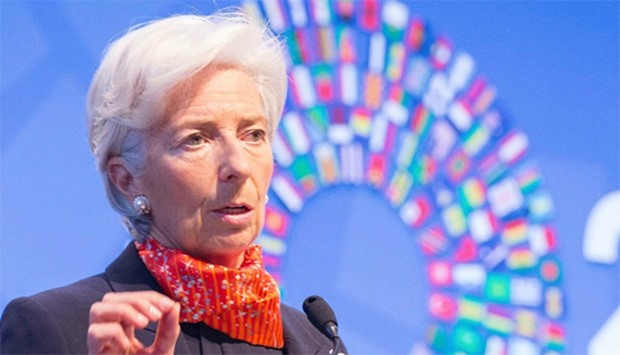The world's number three economy will expand 0.5 percent this year and then contract 0.1 percent in 2017, the Washington-based IMF said, reversing an earlier forecast for a 1.0 percent and 0.3 percent expansion respectively.
It also warned that inflation would sink into negative territory this year -- way below the Bank of Japan's 2.0 percent target -- owing to weak energy prices and the growth-sapping impact of a strong yen.
‘Deflation risks remain a concern in Japan and several euro area countries,’ the IMF said in its semi-annual World Economic Outlook.
Japan's economy has been hit by the slowdown in China, while fears about global growth have pushed up the safe-haven yen, which is bad news for the profits of major exporters such as Toyota and Sony.
‘The recent appreciation of the yen and weaker demand from emerging market economies are projected to restrain activity during the first half of 2016,’ the IMF said.
The revised forecasts mark another blow to Prime Minister Shinzo Abe's bid to conquer the deflation -- a spiral of falling prices -- that held back the economy for years.
Abe unveiled his plan, dubbed Abenomics, in 2013 to kickstart the economy with a vast government spending programme and huge monetary easing by the Bank of Japan.
But his pledge to shake up the highly regulated economy have made slow going, and doubts are growing over whether Abe's plan will succeed in bringing lasting growth.
The economy contracted in the last quarter of 2015 and the outlook among economists for this year is weak.
On Tuesday the IMF warned that consumer spending would take a hit in 2017 when Tokyo is expected to raise the national consumption tax to 10 percent from 8.0 percent.
Japan's economy fell into a brief recession in 2014 when Tokyo increased the tax to its present level as it looked to raise more revenue to pay down a staggering national debt.
The IMF reiterated its call for Japan to open up its economy and said it stood behind the BoJ's massive monetary easing campaign to prop up the economy.
‘Structural reforms that raise productivity are vital,’ the Fund said.
Japan's fast-ageing population was a worry for future growth, and more efforts should be made to boost the number of workers, particularly an under-utilised pool of female workers, the IMF added.
‘Japan's medium- to long-term growth prospects remain weak, primarily reflecting a declining labour force,’ it said.



